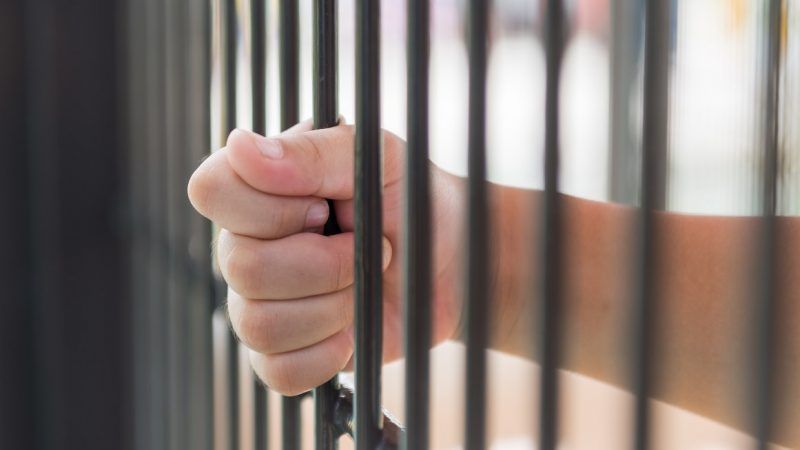ACLU Sues Detroit for Bail System that Punishes the Poor
Magistrates don’t care whether defendants can pay, leaving the indigent stuck in jail before they’re ever convicted.

Detroit's bail system unconstitutionally punishes poor people accused of crimes, according to the American Civil Liberties Union (ACLU) in a new federal class action lawsuit.
On Sunday, the ACLU of Michigan filed suit in the U.S. District Court for the Eastern District of Michigan Southern Division on behalf of eight plaintiffs who had been caught in the bail system of the 36th District Court in Detroit.
According to the lawsuit, ACLU representatives have witnessed hundreds of Detroit court proceedings where magistrates simply rushed through arraignments and assigned bail amounts based on the nature of the charges without inquiring about defendants' ability to pay. Defendants are not permitted to ask questions or explain their situation, and in 95 percent of these cases were not yet represented by attorneys.
Cash bail was ordered in 85 percent of the cases the ACLU observed. The magistrates do not determine whether the defendants are dangerous or flight risks, so the primary factor determining whether people are detained in cells while awaiting their day in court is simply whether they've got money. Jails in Wayne County (where Detroit is located) house about 1,600 people every night, 62 percent of whom are being detained pretrial.
A third of the people in Detroit live below the poverty line. According to the ACLU, when defendants cannot immediately make bail, they have to wait at least a week for their next hearing (when they'll have counsel) to try to request bail to be reduced. One of the plaintiffs in the suit couldn't afford $200 after getting arrested over an unpaid five-year-old misdemeanor ticket for staying in a park after dark. He was told he would have to stay in jail for two weeks before his next hearing. Other plaintiffs were arrested for more serious charges, in some cases violent felonies. In all cases, though, the initial arraignments remained the same. They were brought before a magistrate in a remote teleconference. The magistrate rushed through the proceedings to the point that the defendants said they didn't even understand what was happening, setting bail amounts without asking the defendants anything or even explaining why the bail amounts were set at those levels.
Indeed, according to the lawsuit, people who appear before the magistrates are often threatened or intimidated if they try to ask questions or say anything outside the court's script:
Once the Magistrate Defendants have announced the bail conditions, they instruct the arrestee to step away from the camera. If the arrestee seeks to ask a question, the Magistrate Defendants typically interrupt the arrestee with a warning that anything she says can and will be used against her in a court of law. In issuing such a warning, the Magistrate Defendants typically do not first inquire whether the individual's question pertains to the underlying criminal allegations or to the court's bail determination. In one instance on March 18, 2019, Magistrate [Millicent] Sherman told an arrestee who attempted to raise a question that "now is not the time to ask questions." Sometimes, DDC guards can be heard over the video audibly "shushing" an arrestee or otherwise instructing them not to speak further with the Magistrate, even when the arrestee attempts to ask questions about their particular bail situation. Predictably, many individuals who are bold enough to interpose questions in the first place do not proceed with their questions after such an admonition.
This suit is similar to one the ACLU recently filed against judges in Philadelphia for engaging in similar behavior.
Bail is supposed to be applied as a way to make sure that defendants don't skip out on court dates or commit additional criminal acts while free. Instead, many courts have simply used them as default demands, with risk assessment playing no role in determining who goes free. It's all about whether they can scrounge up the money.
As a result, people who are poor end up being punished just for being arrested, whether or not they're convicted. Because they cannot get out of jail, they lose income (and potentially their jobs), face evictions, and could even lose custody of children.
The lawsuit charges the Detroit magistrates with violating the detainees' due process and equal protection rights under the 14th Amendment and their 6th Amendment right to counsel. The lawsuit is asking for a permanent injunction stopping the current bail system and substituting one that pays attention to defendants' ability to pay and that considesr the actual risk factors of flight or danger to the community.
For more about the current legal push for bail reform, go here.

Show Comments (4)